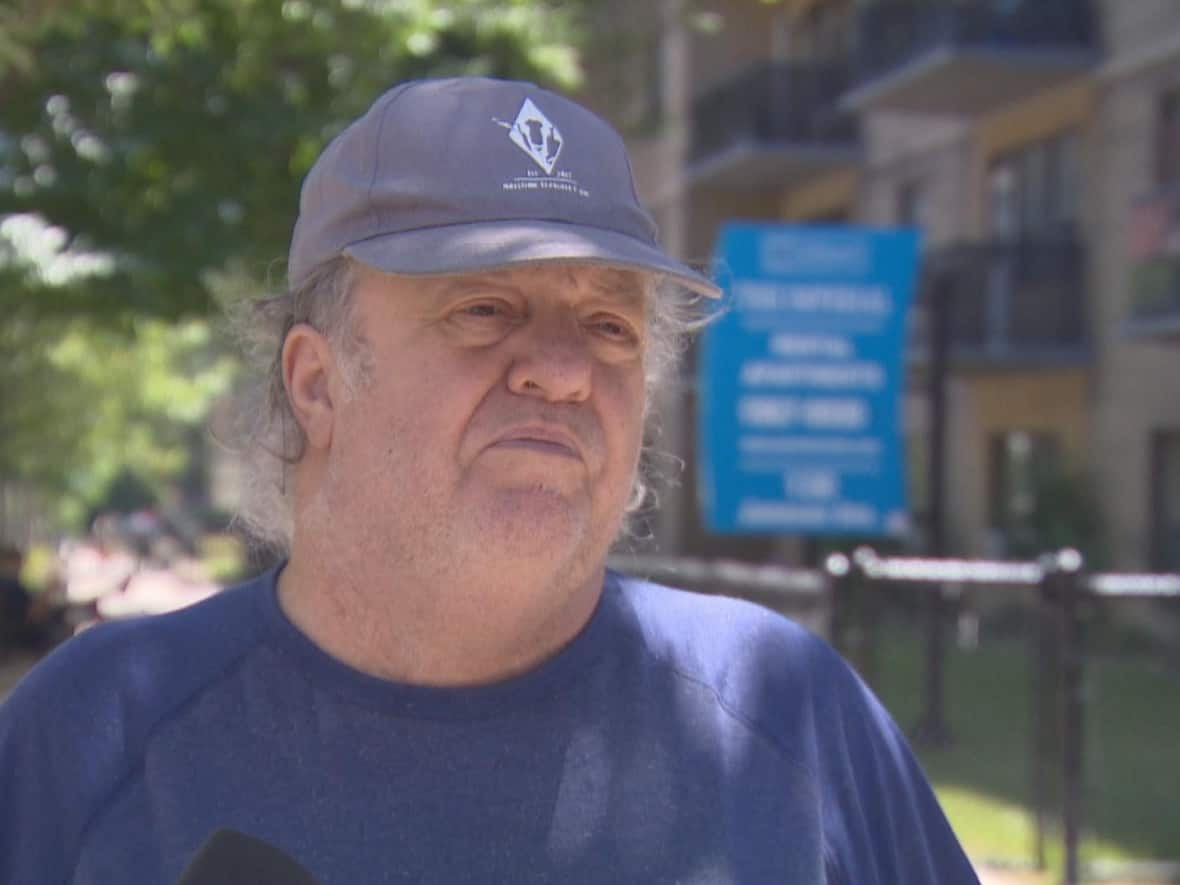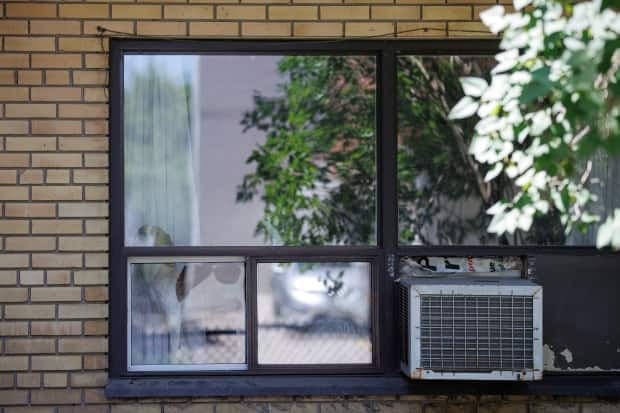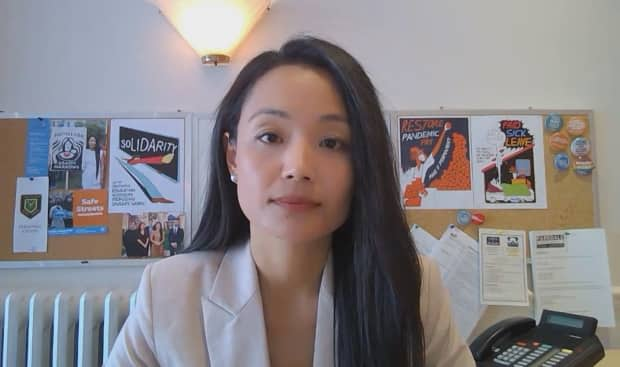Facing eviction for using air conditioning, residents of a Parkdale building speak out

Dozens of residents of a Parkdale apartment building are suddenly facing eviction for using air conditioning, fearing their landlord's crackdown is an attempt to rid the building of those with lower rents and bring in higher paying tenants.
Bhutila Karpoche, MPP for Parkdale-High Park, told CBC News she is aware of approximately 50 residents at 130 Jameson Ave. who could be kicked out because of their use of air conditioning. That's as Toronto has faced humidex values into the 40s only one week after the official start of summer.
One of those tenants, Karpoche says, is in a wheelchair with serious underlying health issues and has lived in the building for years.
"She's lived there for decades and the use of AC has never been an issue before. And all of a sudden, now she's received this notice simply for using her AC in order to be able to stay cool," she said.
"This is a serious health and safety risk for tenants."
'A way of getting rid of us,' says tenant
CBC News spoke with multiple residents who have also lived in the building for upwards of 10 years and say the use of air conditioning has never been an issue until now.
Gerald Lomond is one of them.

Lomond, who's lived in the building for about a decade, says hydro was included as part of his lease agreement, but that he's now faced with the choice of paying for it himself or finding somewhere else to live.
"I feel like it's just a way of getting rid of us because we are paying a lower rent. If we were to move out and move back in, our rent would go up six or seven hundred dollars," he said.
Cindy Therrian and Elizabeth Beard, who have lived in the building for 30 years and 13 years respectively, agree.
Therrian lives with a respiratory condition called chronic obstructive pulmonary disease but says she feels the landlord "doesn't care about the tenants," and that the sudden change is an issue of "greed."
Tenants given options to pay for hydro or get rid of AC
The landlord, Myriad Property Management, said in an email it conducts annual inspections of all units in the building and takes note of any violations of a tenant's lease, including air conditioners or other appliances not included in their agreement.
Tenants are then given a warning letter and one to two weeks to comply, with options to pay for hydro directly or paying a monthly fee to the property management company.

Those tenants' units are then re-inspected. If they continue to use unapproved appliances, they are then given a notice warning of possible eviction, the company said.
"It was not, has never been and will never be our intent to evict someone without providing them the opportunity to remedy the situation in a reasonable manner and amount of time," the statement said.
MPP wants to see maximum temperatures regulated
But Karpoche says tenants in Ontario face "a major loophole" created during former premier Mike Harris's PC government, where if a unit is vacant, rents can increase by an unlimited amount.
"There is no cap. So if a rent in a particular unit is doubled, that would be perfectly legal. And this is a loophole that pretty much incentivizes landlords to evict tenants, most often for bad-faith reasons, sometimes for completely bogus reasons," Karpoche said.
That's why, Karpoche says, rent needs to be stabilized between tenants, something the New Democrat tabled a private member's bill on in the last session of the legislature. The proposed legislation was voted down, she said.

The MPP also says Ontario needs to consider regulating maximum temperatures for rentals like it does minimum temperatures during the winter months.
While the Residential Tenancies Act, 2006 outlines that a minimum temperature of 20 degrees must be maintained as part of a "vital service" requirement, there is nothing in the act outlining maximum temperatures.
CBC News contacted the Ministry of Municipal Affairs and Housing asking if there is a need for maintaining maximum temperatures in the summer, especially given more frequent heat waves. But the province says it's the city's responsibility, despite the Residential Tenancies Act, 2006 being provincial legislation.
"Municipalities establish and enforce bylaws for property standards, which set out operation and maintenance standards for rental housing, including air conditioning," ministry spokesperson Melissa Diakoumeas said in a statement.
In the meantime, the residents of 130 Jameson say they're not going anywhere.
"Everybody is sticking together," said Therrien.
"I know I'm going to be in trouble for talking but I don't care."

 Yahoo Movies
Yahoo Movies 
